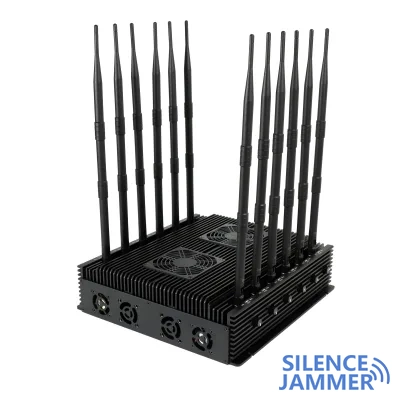In today's digital age, privacy protection has become increasingly important, especially when the security and privacy of personal data face various threats. As an effective tool, jammers are increasingly becoming one of the key solutions to these threats. Although the use of signal jammers may be controversial in some cases, it is undeniable that they play an important role in protecting personal privacy and preventing phone tracking and wiretapping. cell phone jammer
1. Legal background of jammers
First, we need to understand the background of the Electronic Communications Protection Act (ECPA). GPS jammer This law, passed in 1986, is intended to protect the privacy of electronic communications of American citizens. Wifi jammer However, with the advancement of technology, this law is outdated in some aspects and cannot fully cope with the privacy challenges brought about by the current digital age. According to a survey by federal judge Stephen Smith, there were more than 30,000 sealed surveillance warrants across the United States in 2006. Many of these surveillance warrants were executed without public review, resulting in large-scale privacy violations.
The existence of these surveillance warrants means that an individual's electronic communications may still be monitored even if there is no suspicion of a crime. Worse still, these surveillance orders may have been initiated before the crime was committed, resulting in the personal information of innocent people being eavesdropped, tracked, or even monitored. The widespread and hidden nature of this privacy violation has prompted more and more people to seek more effective means of privacy protection, and jammers are one of them.

2. How jammers work
A jammer is a device that blocks communication signals by emitting radio waves of a specific frequency. It can effectively interrupt mobile phone signals, GPS signals, and even wireless network signals, thereby preventing these devices from being tracked or eavesdropped. Jammers have a wide range of applications and can be used to protect personal privacy, prevent the leakage of trade secrets, and protect national security in special circumstances.
For example, when we communicate through mobile phones, the phone's signal is transmitted to the destination through a base station. However, these signals may be intercepted during transmission, resulting in information leakage. Jammers can prevent criminals from obtaining the content of communications and ensure the security of information by interfering with the transmission of these signals.
3. The application of jammers in privacy protection
In terms of privacy protection, jammers have a wide range of application scenarios. Large companies and privacy advocates regard ECPA as a legislative priority precisely because they realize that only through effective technical means can personal privacy be truly protected. Many companies have begun to use jammers to protect the communication security of their executives and prevent the theft of trade secrets. In addition, jammers are also widely used in government departments, military bases and other sensitive places to prevent the leakage of sensitive information.
At the individual level, more and more people are beginning to use jammers to protect their privacy. Whether at home, in the office, or in public places, jammers can provide individuals with a relatively safe communication environment to prevent unnecessary tracking and eavesdropping. This technology can not only protect personal telephone communications, but also prevent monitoring through Internet activities such as email access, social network use, and browser history.

4. Controversy and Challenges of Jammers
Although jammers play an important role in privacy protection, their use has also caused a lot of controversy. First, the use of jammers is strictly regulated and even illegal in some countries and regions. This is because jammers may interfere with public communication networks while blocking communication signals, affecting the normal communication of others.
Secondly, the use of jammers also involves ethical and legal issues. While protecting privacy, we also need to consider the freedom of communication and public safety of others. For example, in some emergency situations, blocking communication signals may delay rescue operations or even endanger lives.
Therefore, when using jammers, we need to weigh the privacy protection effect it brings with the possible negative impact. Only when jammers are used legally and compliantly and when necessary can they truly play their due role.
Posted
Aug 11 2024, 10:38 PM
by
jammerspecialist